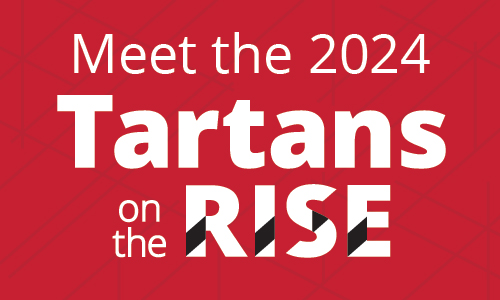Tomas Aftalion, Co-founder and Head of X, Pachama
Creating Carbon Credit Transparency
Through data, Tomas Aftalion (HNZ 2012, 2015) makes the invisible visible.
The Argentinian native came to Carnegie Mellon University intent on studying big data and earning master’s degrees in both information technology and information systems management.
He’s become an expert in large-scale social network analysis. That means he makes sense of vast pools of information, then makes them actionable for a cause.
“I was drawn into mathematical graphing networks and fascinated to visually see social graphs,” he says. “My early work was to give out thousands of microloans per day in Kenya. I crunched cell phone data to understand to whom we should lend money.”
Up next was an even bigger challenge: carbon credits. Each credit promises to remove a ton of carbon dioxide from the atmosphere to combat climate change.
But how can environmentally-minded investors ensure that the millions of credits purchased actually remove the invisible gas and have the intended effect?
Tomas co-founded Pachama, a multimillion-dollar startup, to answer that question.
Pachama was recognized by Fast Company as one of the Most Innovative AI Companies 2021 and earned a spot on the Forbes AI 50 in 2023 list.
“Using public satellite data and AI, we were one of the first companies out there checking that the claims made by company credits are truthful,” he says. “We add transparency to the credits people are buying, by adding a layer of technology and auditing you wouldn’t have otherwise.”
Tomas’s role at Pachama is highly technical and focuses on the data interpretation functions. In his role as head of special projects, known at Pachama as the “X” department, he’s delving deeper into data. Right now, this means measuring biomass using drones to survey sites where carbon credits are in use and leveraging generative deep learning to quantify impact.
“I’m able to study whatever needs more attention at the moment, and I have the freedom to pursue whatever can bring the greatest benefits in the future,” he says.
Story by Elizabeth Speed
